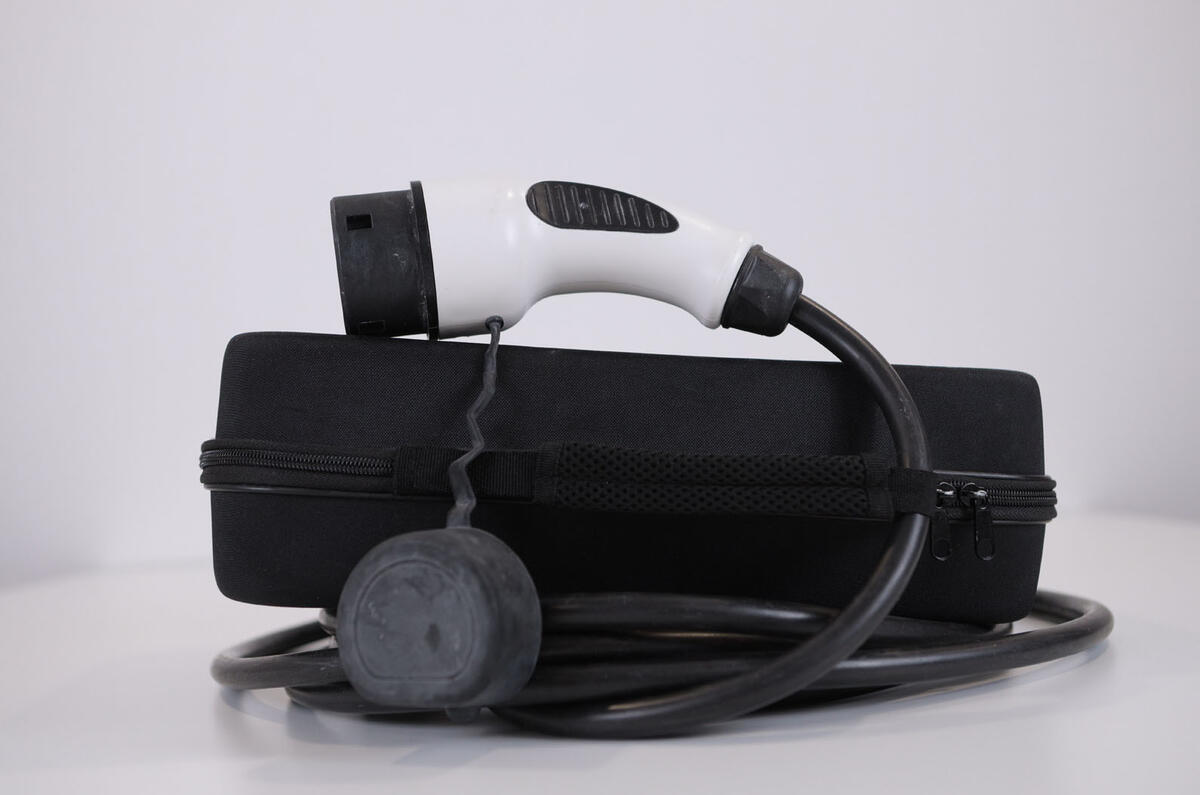Electric car owners are putting themselves at risk by buying cheap charging cables that may not be fit for purpose, an electrical safety charity has warned.
Electrical Safety First identified three EV charging cables that in tests risked overheating and causing an electric shock.
They were available on Amazon Marketplace and eBay. Following the charity's investigation, the items – portable Mode 2 charging cables that have a three-pin plug at one end for connection to a wall socket – have been removed from sale.
Lesley Rudd, chief executive of Electrical Safety First, said: “Charging your car should never put you at risk, but the devices we found for sale via online marketplaces risk turning this everyday task into a potential hazard."
Research by the charity has found that around a third of consumers use online marketplaces to compare prices and save money. It claims that, being aware of this, third-party sellers are flooding them with cheap, poor-quality electricals.
The charity has reminded consumers that they have fewer rights buying from online marketplace sellers than from retailers.
A spokesman said: "Those such as Amazon Marketplace and eBay are recognised in law only as a platform and not as a retailer. Subsequently, they aren't legally bound to take reasonable steps to ensure goods sold via their platform are safe in the same way reputable high street retailers are. This is why we are urging the [UK] government to bring forward laws that would force online marketplaces to take steps to ensure goods sold via their platform are safe. Until then, when choosing a charging cable for their car, motorists should only buy from a reputable retailer they trust."
Responding to Electrical Safety First's investigation, a spokesman for eBay said: "We take a proactive approach to keeping our users safe. We have removed the items that Electrical Safety First flagged to us."
A spokesman for Amazon said, "Safety is a top priority and we require all products in our store to comply with applicable laws and regulations. We have removed these products while we investigate."
Chris Montgomery, a director of EV Chargers Direct, which supplies EV charging equipment, told Autocar that sub-standard charging cables often aren't properly rated for use in the UK.
"Many such cables are made in China and supplied across the world where a 16-amp rating is common," he said. "However, UK plug sockets are rated at only 13 amps. As a result, the higher current carried by the cable overloads the plug socket, causing it to melt and even to catch fire. We recommend people only purchase a cable rated at 10 amps."
He added that cheaper cables may also not be sufficiently waterproof, UV-resistant and weatherproof or carry TÜV and CE approval.




Join the debate
Add your comment
I thought that the charge cable provided would at least be guaranteed so that if it was faulty you'd get a replacement free of charge from whatever brand of EV you had bought.
The device should be fused to 10 amp or 13 amp when plugged into a UK socket with a UK plug, the primary reason for the plug fuse is to protect the connecting cable from this occurance not to protect the actual device, that is usually seperately fused. How are people able to draw 16 amps unless the charger plug and socket are unfused or they've hard wired it to a 30 amp main fuse, also given that you are not supposed to carry out your own wiring (as far as I know) how would have electricians allowed this. I know sometimes cheap wire can be CCA (copper clad aluminium) that is not actually capable of carrying the rated current, that's a real problem if that the case.
poor form putting a photo with jaguar branding front and center, suggests that jaguar supplied cables are at fault.